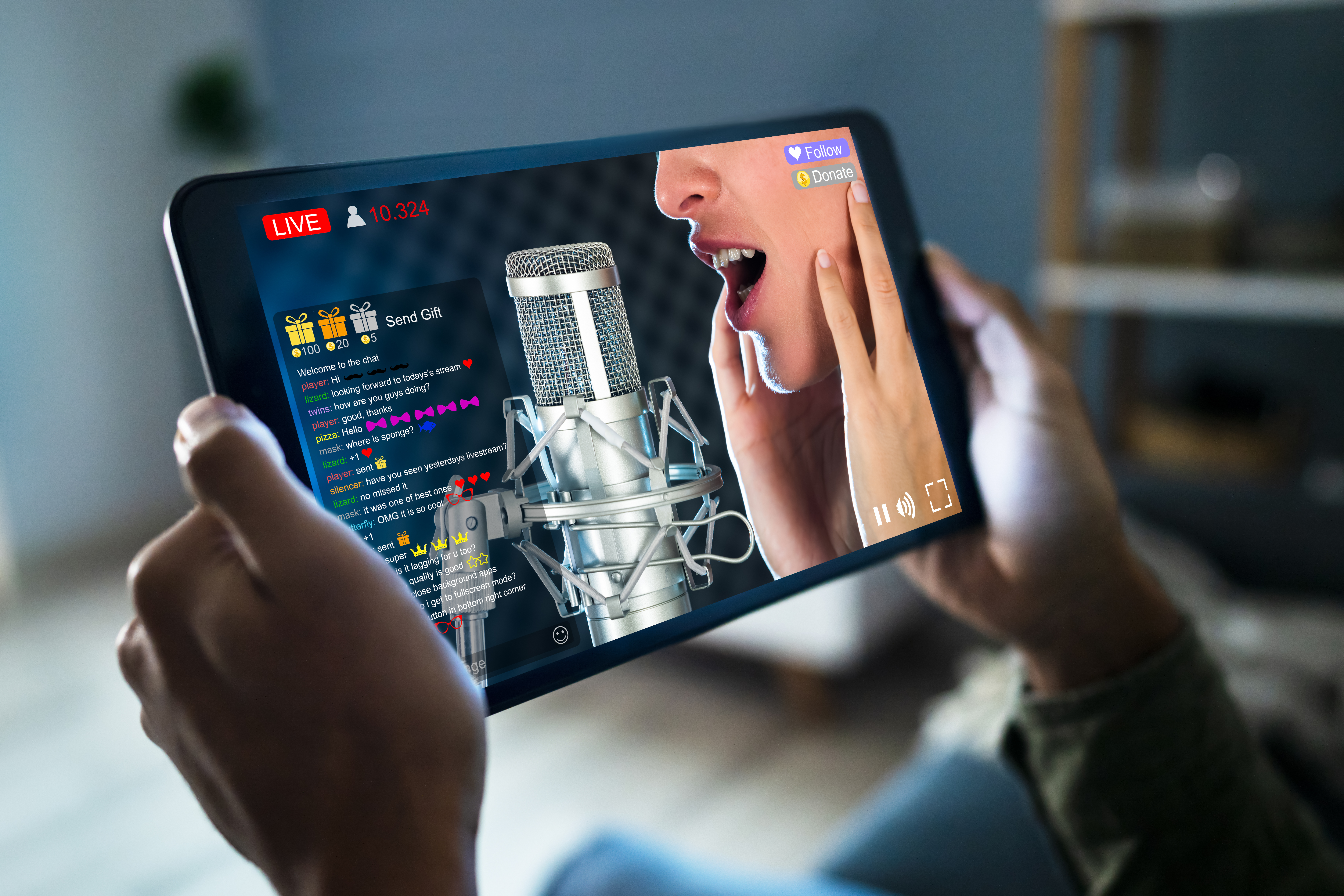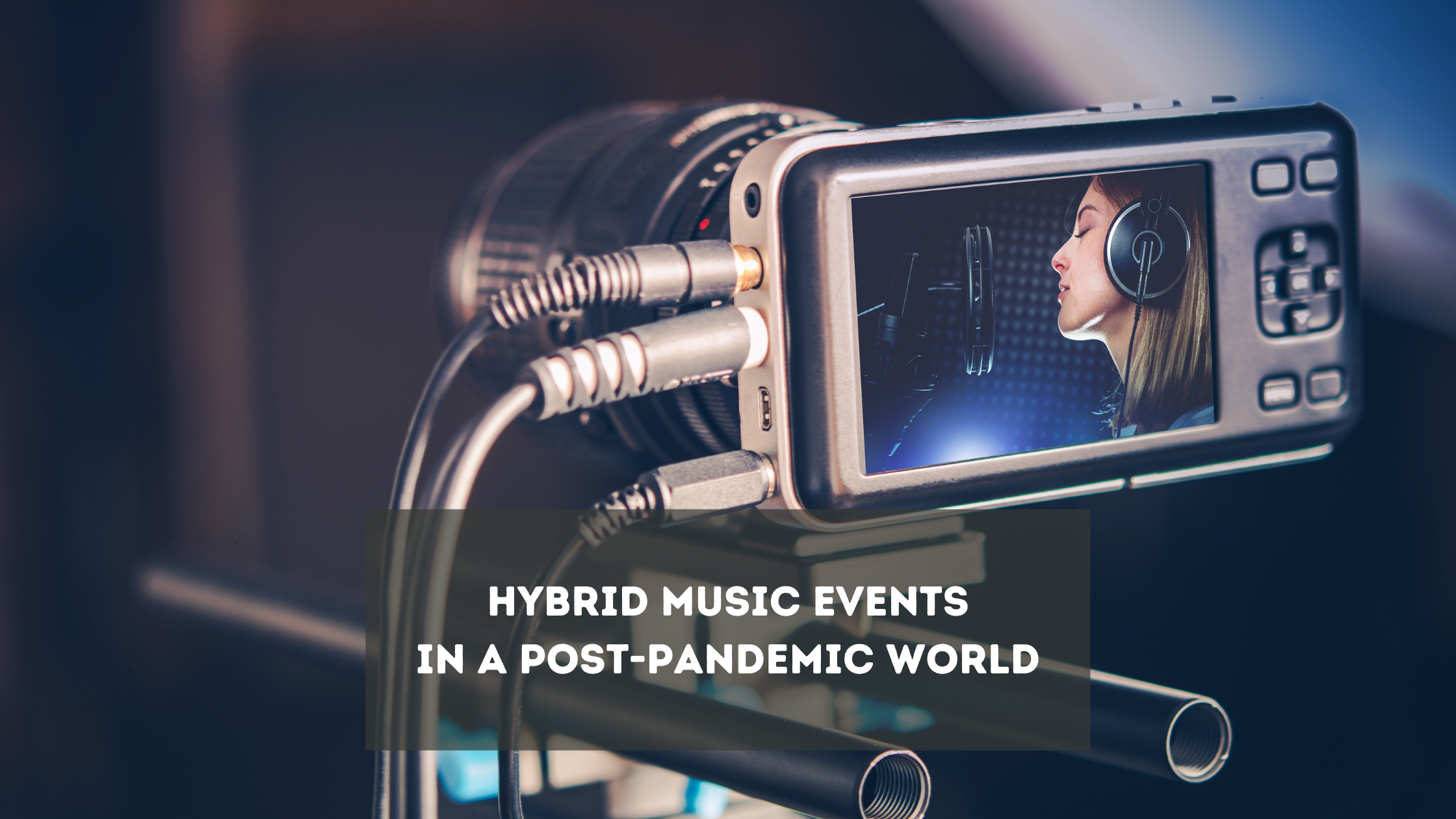In the midst of an unexpected global pandemic, countless concerts and tours had to be cancelled. Musicians who could afford to, chose to livestream to keep their music visible. Just as the world began to open back up again and concerts seemed to be back, we’re facing another season of cancelled events. Audiences are starved for live events and musicians are left wondering what comes next. Whatever a “new normal” turns out to be, hybrid events seem to be a leading solution to the world’s ongoing live music woes.
What’s a hybrid music event (and why didn’t we think of this before)?
From bootlegged live concert tapes to Live AID and expensive, multi-camera productions of massive live concerts that stood up to Hollywood blockbusters, virtual or post-event participation in live music concerts has been a popular add-on to live events for decades. Given the power and mass presence of the internet, why hasn’t that transitioned into the online world of streaming yet?
User adoption doesn’t seem to be much of an issue. According to a recent Performance Research survey, only 33% of Americans say they would be comfortable going to an indoor concert after the pandemic. But masses of folks miss live music. Hybrid music events may be the perfect solution – for now and in the future.
A hybrid music events incorporates livestreaming and live music elements. The concert is attended by a smaller group of people and it is also livestreamed to the masses. Various safety protocols may be enforced for the live audience such as vaccination checks, social distancing, mask wearing, and limited audience attendance. The livestreaming element means that people can watch it virtually no matter where they are located. And, even without the pandemic element and strict safety protocols, hybrid events enable musicians to perform in smaller venues or their own studios, while sharing their craft and opus with their fans.
Pandemic or no pandemic, the interest and capabilities for hybrid events are obviously there.

What to expect in 2022
A hybrid music event comes with its share of benefits, but there are plenty of small hurdles left to overcome and new practices to adapt to. Let’s consider the pros and cons.
Pros of live hybrid events
- Keeps the energy of live music: A hybrid concert captures the energy of the live music experience, keeping it exciting for the artist and everyone who is participating, whether in-person or virtually.
- Lowers event production costs: We’re afraid to even look at the artist income numbers for the last year. Music industry revenue may be growing steadily, but most musicians have seen nothing but significant income losses. Hybrid music events don’t require a large venue to accommodate a large audience (and related ticket sales). Fans are happy to pony up to participate remotely. Artists could very well plan and execute a solid 2-hour live stream from their home studios and bring in as much profit as they would from a large venue concert, minus the venue and logistics costs associated with the latter.
- Eases people into a live concert format: Hybrid concerts set the stage for easing into bigger live music events. Not every fan enjoys going to big, crowded events. Not everyone can afford to travel to the nearest large concert venue that their favorite band has booked. Some fans aren’t old enough to attend in-person events and some folks just can’t fit them into their busy schedules. Hybrid and live streamed live music events remove all of those issues in one fell swoop.
- Increases revenue: Even if artists want to and are able to execute the standard concert tour logistics and schedule, large venues, travel, and all – hybrid events could as much as double revenue from those concert tours, at very little additional cost. The concert industry needs to sit up and pay attention before audiences and artists lose another concert season.
Cons of live hybrid events
- Audience adoption: Though all indicators point to audiences being ready and able for hybrid and live streamed concerts, reaching those audiences to present this “new product” is not an easy task. It isn’t complicated either, but the truth is that it’s all still new to the music industry and needs to be worked into existing systems and practices. We predict 2022 will boost efforts to meet audience adoption readiness.
- Lack of industry expertise: Much like the audience acquisition and sales end of it, there’s an additional lack of multiple other skill sets in the concert industry. We believe this hurdle will be overcome by large streaming and production companies joining forces with concert industry professionals. There may be a few bumps along the way as they learn to work together and deliver the best experience, but that will also prove to be a breeding ground for innovation and better results.
- Lack of opportunity for working class and middle class musicians: It seems more than likely that working class musicians will be left for last again. Event organization and management are costly and require teams of professionals to get it all done. Streaming platforms, sound technicians familiar with online events, moderators, digital marketing – all of these and more are required and prohibitively expensive for the average musician or band. Platforms that aggregate many of those tech solutions or provide a good chunk of those services at reasonable prices are expected to emerge in greater numbers to support the working musician.

Making hybrid events more exciting
Hybrid music events may be a step up from livestreaming alone, but artists must still add elements to keep their virtual audience engaged. Here are a few ideas.
- AR and VR: Augmented reality (AR) and virtual reality (VR) can be implemented to get virtual audiences more excited. AR involved putting virtual information on top of a livestream to improve the experience. VR immerses users into the concert making them feel like they are in the middle of the action.
- Q and A: Performers can provide a more interactive experience by doing a Q and A with their virtual audience. They can communicate them and answer their questions in real time as they pop up on the screen.
- Take Requests: Artists can take song requests live to let their audience feel more like they are part of the concert.
The pandemic has put a damper on live music. Hybrid music concerts are a great way to keep the party going. Will 2022 be the year of live (hybrid) music?

